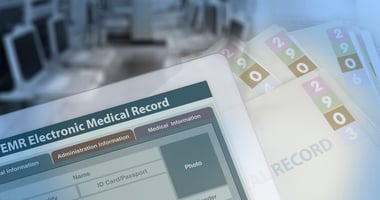Can sharing electronic medical records within a hospital make a difference in patient outcomes? A...
Concerns Raised About Security Breaches in Electronic Medical Record Systems
 |
Part of the problem, Rubin noted, is a lax security culture in which physicians and other medical staff "sidestep basic security measures, such as passwords, in favor of convenience." Vulnerabilities in medical records software from several manufacturers were identified during the investigation, with the companies acknowledging the gaps and fixing the problems. Last July, the report notes, a consortium of hospitals, health plans, pharmacies, drug companies, and government agencies responded to the growing security threat by establishing the Health Information Trust Alliance to defend against "cyber crime, cyber espionage, and cyber activism."
Read the full report here. For more information about electronic health record systems, see Psychiatric News here and here.
(image: Mike Flippo/Shutterstock.com)





